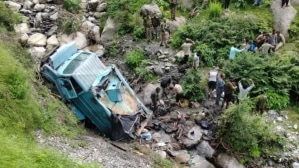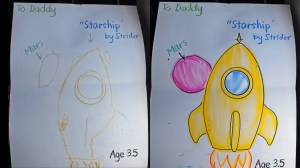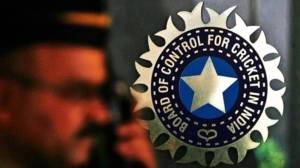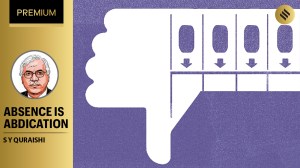With 300 free labs, how Delhi government is pushing virtual learning
More than 300 virtual labs have been made available on the DIKSHA platform to ‘enhance conceptual understanding’ for Class 6 to 12 students, through ‘interactive simulations and virtual experiments’.
 The circular issued on Tuesday was primarily regarding access to more than 300 virtual labs being made available free of cost on the Digital Infrastructure for Knowledge Sharing (DIKSHA) platform
The circular issued on Tuesday was primarily regarding access to more than 300 virtual labs being made available free of cost on the Digital Infrastructure for Knowledge Sharing (DIKSHA) platformThe State Council of Educational Research and Training (SCERT), Delhi, in a recent circular, has asked all school heads and teachers under the Directorate of Education to “integrate the use of virtual labs into classroom teaching and learning practices wherever possible”.
The circular issued on Tuesday was primarily regarding access to more than 300 virtual labs being made available free of cost on the Digital Infrastructure for Knowledge Sharing (DIKSHA) platform by the Central Board of Secondary Education.
“It is hereby informed that the…CIET, NCERT has made available more than 300 Virtual Labs on the DIKSHA platform for students and teachers,” the circular said, adding that the labs are free and designed to “enhance conceptual understanding” and “practice learning across various subjects through interactive simulations and virtual experiments”.
The school heads and teachers have been requested to access and explore the virtual labs, inform and encourage all students, from Classes 6 to 12, to make use of the resource and integrate it into classroom teaching and learning practices. “These labs are especially beneficial in providing experiential learning opportunities where access to physical lab infrastructure may be limited,” read the circular.
Virtual labs were launched in July 2022 under the National Education Policy (NEP), 2020. As per the National Council of Educational Research and Training (NCERT), the number of plays and the play time (in minutes) while using this platform have shown a consistent increase, indicating that the consumption has increased over the years.
NEP 2020 recommended the creation of virtual labs, stating that though not a substitute, it has the potential to enhance the actual laboratory experience. At present, the virtual labs constitute a variety of resources, including animations and videos to visualise theoretical concepts, theory, procedures, which provide conceptual information and simulations for real-time experience of performing experiments.
For instance, as a science activity in Class 7, there is a simulation to observe stomata in leaves where the user has an option to select from a petunia, bougainvillaea or a mango leaf. Upon clicking the leaf, a virtual hand would tear it. The user can then drag and drop forceps to pick the leaf and drop it on a glass slide. Then, a water dropper placed on the table can be selected and dragged towards the glass slide. In this way, the experiment is completed by dragging and dropping different virtual tools on the screen; there is also an option to maximise or a ‘help’ option, which would provide step-by-step instructions for assistance.
It also includes a feedback mechanism and a viva voce for self-evaluation. Arti Qanungo, a TGT English teacher in a Delhi government school, said, “This is a wonderful platform. Several diverse topics of Mathematics, Science, English, Physics, Chemistry and Biology are discussed here. They are really helpful for the students…rules are explained with the help of examples. There are also interesting videos.”
Another principal of a private school in Delhi said, “This is mostly useful for schools where there are no well-equipped labs. We have state-of-the-art labs. Students perform experiments hands-on and learn. It was useful during the COVID-19 pandemic. These labs will be essential to continue education in emergency situations. Physical practical classes are far better than learning in the virtual mode.”
The concept of virtual labs has been emphasised for quite some time now in Delhi’s schools; for example, previously under the National Initiative for Proficiency in Reading with Understanding and Numeracy (NIPUN ) Bharat scheme in 2021 under the Samagra Shiksha scheme. To this, the SCERT, Delhi, had introduced virtual labs for primary classes “to provide the learners first-hand learning experience of the virtual space, appropriate infrastructural arrangements” in selected schools.












